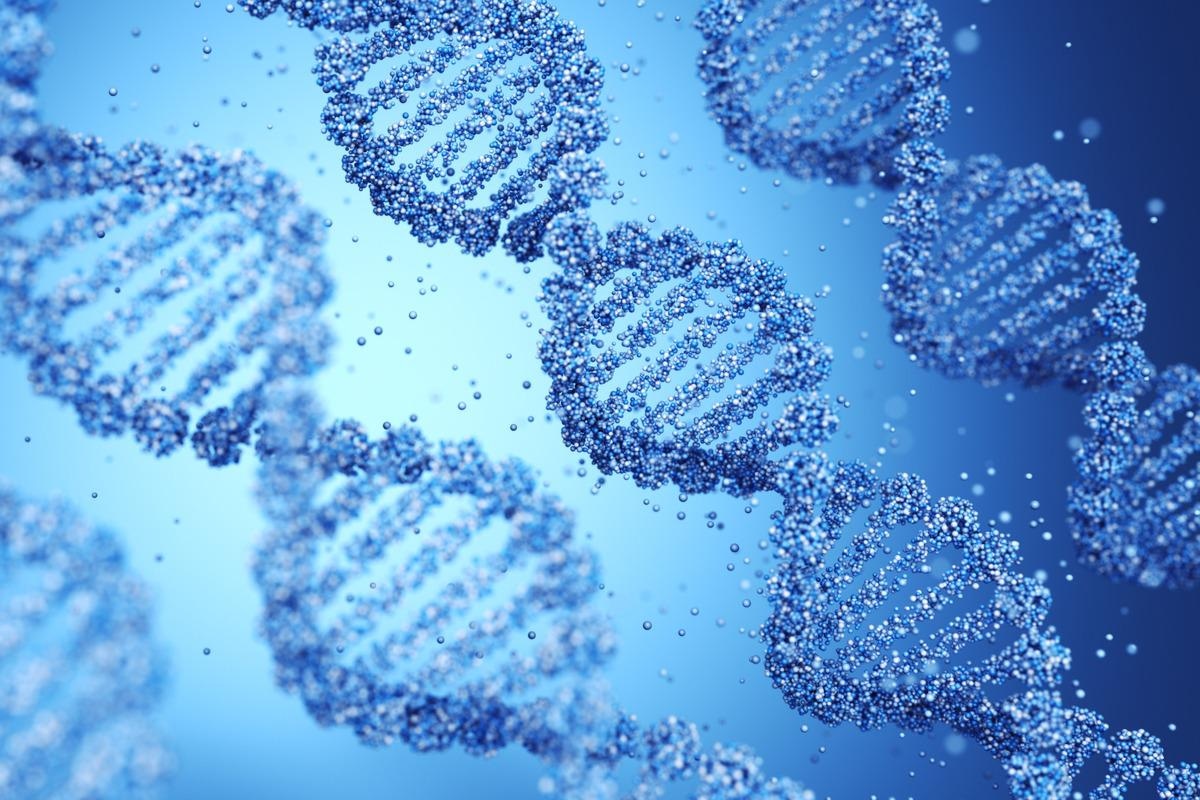
Genetic counselors are well-established and integrated into the field of genetic and genomic medicine. Genetic counselors collaborate with other healthcare professionals and provide information and support to genetic disorder patients and their families.

Image Credit: Syda Productions/Shutterstock.com
Genomic medicine has been driven by many large-scale sequencing projects conducted worldwide. Genomic medicine still faces several challenges: data sharing/ use across borders, the absence of standardized methods for genomic data interpretation, and the streamlining of quality-assured results in clinical settings. Despite this, more recent projects have enabled genomic diagnoses to be delivered in the healthcare setting.
The Role of a Genetic Counselor
The purpose of genetic counseling is to increase a family's awareness and understanding of particular genetic diseases and the risk and benefits of testing, disease management, and the options available to them. Genetic counseling also allows the affected individual on their family to develop the psychosocial tools required to cope with the consequences of genetic disorders, which subsequently reduces stress on the burden associated with genetic disorders.
Genetic counselors can help families identify the consequences of genetic disorders invite unique personal, cultural, and familial contacts. As well as providing information, genetic counselors also provide counseling services on advocating for patients. They can refer individuals and the family to relevant healthcare professionals and provide them with links to community services.
Why Is Genetic Counseling Important?
Genetic counseling is particularly important to individuals and their families are there often affects family planning, and there are different stages throughout individuals lives where genetic counseling may be instrumental:
- Pregnancy planning: genetic counseling can explain genetic conditions that run in families and reveal the nature of infertility, multiple miscarriages, or stillbirth. In addition, previous pregnancy or existing children affected by a genetic condition can inform the likelihood of occurrence in a subsequent child
- During pregnancy, genetic counseling can detect any problems or conditions that may affect the developing fetus during infancy and childhood. These include a history of infertility, stillbirth, or miscarriage; abnormal test results, such as a blood test, amniocentesis, chorionic villus sampling, or blood test; maternal infections and other exposure to medicines, chemicals, x-rays, and drugs; the presence of common genetic disorders such as cystic fibrosis, sickle cell disease, as well as additional conditions that run in either of the partner families
- Caring for children with suspected genetic disorders: this is important when children show signs and symptoms of a genetically linked condition, for example, birth defects, problems relating to vision or hearing, and intellectual or developmental disabilities
- Managing health: this is important when individuals may have a family history of a particular disease such as hereditary breast and ovarian cancer, familial hypercholesterolemia, muscular dystrophy, and other neuromuscular disorders, as well as inherited movement and blood disorders
The Growing Need for Genetic Counseling in Healthcare and Medicine
As genomic medicine improves, there is increasing demand for skilled and competent genetic counselors; as such, they still require the development of relevant skills in healthcare practitioners. As genomic medicine is mainstreamed at scale, there will be a growing demand to communicate results from genomic testing to patients on their families., there is a growing need for genetic counseling skills necessary to deliver the appropriate information appropriately.

Image Credit: SWKStock/Shutterstock
The role of genomic counseling has evolved and is now defined by the National Human Genome Research Institute as "an emerging medical discipline that involves using genomic information about an individual as part of their clinical care and health outcomes and policy implications of that clinical use."
As genomic medicine evolves and the technologies used for genetic engineering are becoming increasingly complex, genetic counseling is likely to evolve. A recent survey identified the main roles of genetic counselors as being customer liaison and case coordination alongside variant interpretation and result reporting.
Interpreting the number of variants identified by genomics is essential in determining whether or not a particular change in the DNA sequence is likely to have a deleterious effect.
However, emerging genomics models suggest that variant interpretation will become increasingly iterative with more input from bioinformaticians come from laboratory scientists and clinicians. Understanding genomic sequence technology and varying interpretation is a core component of the knowledge required of genetic counselors and other healthcare professionals. However, as bioinformatic tools become more sophisticated, there will be less need for human intervention.
Genetic counseling is likely to become increasingly multidisciplinary as genomic medicine becomes more mainstream. Therefore, genetic counselors will become increasingly important in education combat training and educating non-genetics colleagues in genomics. The effect is already being seen in the United Kingdom for cancer and preimplantation genetic diagnosis. Genetic counselors may also practice in the academic setting and education or research and policy and industry.
As genomic medicine across the healthcare services becomes more available, genetic counselors are likely to become in demand as they are needed to pick up referrals for genomic testing and explain the significance of results to patients.
Genetic counseling is a practice that is present at all stages in the patient's journey through genomic medicine. Genetic counselors are involved at the beginning of an individual's journey, offering advice on genetic risk estimation and decision-making about testing, through to the interpretation of results, to the follow-up of patients, helping them communicate the results to the family. Genetic counseling goes further than education, providing support to individuals and their families when managing the psychosocial impacts of the result.
As genomic medicine develops, the role of genetic counseling becomes even more important as the information generated becomes increasingly complex and data sharing becomes increasingly necessary. The consequences of the genetic information as it relates to the impact on future health and family planning will also require specialist genetic counseling to help patients and families adapt to changes and optimize that health outcome.
References:
- Patch C, Middleton A. (2018) Genetic counseling in the era of genomic medicine. Br Med Bull. Jun doi:10.1093/bmb/ldy008.
- Genetic Alliance; District of Columbia Department of Health. Understanding Genetics: A District of Columbia Guide for Patients and Health Professionals. Washington (DC): Genetic Alliance; 2010 Feb 17. Chapter 4, Genetic Counseling. Available from: https://www.ncbi.nlm.nih.gov/books/NBK132139/
- Skirton H, Cordier C, Ingvoldstad C, et al. (2015) The role of the genetic counselor: a systematic review of research evidence. Eur J Hum Genet. doi:10.1038/ejhg.2014.116.
Further Reading
- All Genetics Content
- History of Genetics
- Genetics and Gene Expression
- Genetic Change
- Genetics Research and Technology
Last Updated: Jan 20, 2022

Written by
Hidaya Aliouche
Hidaya is a science communications enthusiast who has recently graduated and is embarking on a career in the science and medical copywriting. She has a B.Sc. in Biochemistry from The University of Manchester. She is passionate about writing and is particularly interested in microbiology, immunology, and biochemistry.
Source: Read Full Article